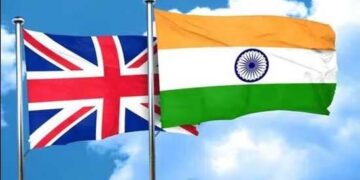Team Blitz India
NEW DELHI: India-UK Free Trade Agreement (FTA) negotiations have reached their last leg, with both sides intent on resolving their differences. The 14th round of talks – being seen as the final – which began on January 10, is aimed at closing the issues amicably.
While Britain has been demanding significant customs duty concessions on Scotch whisky and electric vehicles (EVs), liberalisation of norms in service sectors like banking, insurance and legal, India wants easy movement of professionals, according to reports.
PM Narendra Modi and his UK counterpart Rishi Sunak have been closely monitoring the progress.
The 13th round of talks was held between September 18 and December 15. The round included sessions both in person, in London and Delhi, and virtual talks, shared UK’s Department for Business and Trade. As with round 12, these negotiations focused on complex issues including goods, services, and investment, it added.
There were 26 chapters in the agreement, which included goods, services, investments, and intellectual property rights. Most of these have already been addressed successfully in about a year of talks.
Talks are currently on Indian industry’s demand for greater access for its skilled professionals from sectors like IT healthcare in the UK, besides market access for several goods at zero customs duties.
India is seeking easier visa processing for easier mobility of skilled professionals. The UK, however, is cautious about its immigration policies.
Indian products like petroleum, medicines, diamonds, machine parts, aeroplanes, and wooden furniture – worth $ 6 billion in trade – even now face no tariffs in the UK. Thus, such items will not gain from the FTA.
Textiles, apparel, linen, footwear, carpets, cars, marine products, grapes, and mangoes – whose exports are valued at USD 5 billion – face relatively low to moderate tariffs in the UK.
For example, tariffs on yarn and fabric are 4 per cent, while that on shirts, trousers, women’s dresses, and bed linen range from 10 to 2 per cent.
These products will benefit from tariff reductions by the UK. Also being negotiated is the UK’s demand for a higher level of protection for its Geographical Indication (GI) products from the agriculture sector. Such products include Scotch whisky, Stilton cheese and Cheddar cheese.
India normally provides general protection for violation of GI rules, but the UK is seeking a higher level of protection, said reports. India is also negotiating for relief measures against the impending Carbon Border Adjustment Mechanism (CBAM), slated for implementation in 2027. This is being seen as an assertive move to safeguard India’s economic interests.
















